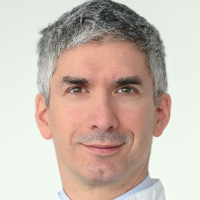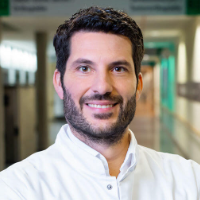Ophthalmology in Germany – treatment in the Best Hospitals
Here you will find most technologically advanced ophthalmological hospitals in Germany
The selection of doctors and clinics is carried out on the basis of annual qualification reports. The main selection criterion is the number of operations or procedures performed. It takes into account experience, reputation in the medical society, the availability of quality certificates and high specialization in a certain field.
Focus of treatment:
- Acute glaucoma
- Blocked tear duct
- Cataract
- Congenital glaucoma
- Congenital lid nevus
- Conjunctival adhesions
- Cornea detachment
- Corneal damage
- Corneal opacity or corneal dystrophy
- Diabetic retinopathy
- Ectropion eye
- Eye cancer
- Eye vessels occlusion
- Glaucoma
- Glaucoma combined with cataract
- Keratoconus
- Macular degeneration
- Macular edema
- Myopia
- Nystagmus, strabismus
- Ophthalmitis caused by sjogrens syndrome
- Optic nerve atrophy (ONA)
- Retina degeneration
- Retinal detachment
- Retinoblastoma
- Scleritis
- Traumatic injury of eyeball
- Vitreous degeneration
- Vitreous haze Show more

Department of Adult and Pediatric Ophthalmology
The Department of Adult and Pediatric Ophthalmology offers the full range of modern diagnostic and therapeutic services in the field of its expertise. The department deals with the treatment of all pathologies of the anterior and posterior segment of the eye. Special attention is paid to operations on the retina, vitreous body



Department of Ophthalmology
The Department of Ophthalmology offers the full range of diagnostic and therapeutic services for patients with diseases of the eye and its appendages. The department’s specialists use cutting-edge laser systems in their work, which can improve or maintain vision even in the most difficult clinical situations. The diagnosti


Department of Adult and Pediatric Ophthalmology
The Department of Adult and Pediatric Ophthalmology offers modern diagnostics and treatment of diseases of the eye and its appendages. The main areas of the department's clinical activity include cataract surgery, vitreoretinal surgery, and the treatment of glaucoma, age-related macular degeneration, diabetic retinopathy, an





Ophthalmology is one of the technically complex areas of medicine. To achieve good results, doctors need state-of-the-art equipment. It is necessary for both diagnostics and treatment of eye diseases. Professionalism is also important: many interventions require years of honed skills and extensive experience. Germany offers all these things. Ophthalmology clinics in this country are equipped with the latest technology. Eye diseases are treated by experts who are considered the best in the world.
Content
What diseases are treated in Germany?
Most patients travel to Germany to undergo treatment for severe diseases that require laser procedures or surgical techniques.
The main pathologies with which patients come to German clinics are listed below.
A cataract is a clouding of the lens that usually develops due to age-related changes. German specialists dissolve the lens with a laser or ultrasound, remove it from the eye, and implant an intraocular lens at its site. The manipulation is carried out through an incision a little more than one and a half millimeters long. After surgical intervention, a person does not just return his vision: his eyesight is even better than in his youth, due to the improved characteristics of the artificial lens.
A glaucoma is a group of diseases that cause optic atrophy and lead to irreversible blindness. Laser or surgical treatment in Germany allows normalizing intraocular pressure for several years or forever, depending on the treatment method and type of glaucoma.
Keratoconus is a deformity of the cornea. The treatment methods used in German clinics can normalize vision and strengthen the cornea in order to avoid the recurrence of the pathology. In the most severe cases, a transplant surgery may be performed. Doctors in Germany use transplants that survive well and prevent corneal opacity.
Refractive errors are the impaired refraction of rays, due to which visual acuity decreases. Outpatient laser surgical interventions allow doctors once and for all to solve the problem of myopia, farsightedness, or astigmatism.
German specialists successfully cope with many other pathologies: strabismus, amblyopia, inflammatory diseases, tumors, retinopathy, refractive errors, and many other diseases. Doctors in Germany deal with the treatment of not only adult patients but also children. Here it is possible to effectively and safely treat even congenital eye diseases in the very first months of life.
Advantages of German ophthalmology
Ophthalmology in Germany has many advantages, among which the following should be mentioned.
1. Minimally invasive treatment.
German doctors rarely resort to traumatic eye surgery that requires general anesthesia, hospital stays, suturing, and long recovery. For the vast majority of diseases, minimally invasive methods of treatment have been developed, including those using lasers, ultrasounds, and other energies. Interventions are performed through small incisions. Some medical procedures are completely non-traumatic and are not even considered surgical operations, although they provide similar results.
2. Thorough diagnostics.
Accurate diagnostics is as important as an effective treatment. Diagnostics allows for determining the cause of visual impairment, selecting the best therapeutic tactics, and planning eye surgery. Specialists in Germany use keratography, pachymetry, Heidelberg retinal tomography, optical coherence tomography, fluorescein angiography, and other methods. All major ophthalmology clinics have state-of-the-art diagnostic equipment, which allows obtaining accurate information about the structure of the eye and its function.
3. Advanced treatment methods.
More effective and safer technologies for the patient are applied. The use of modern surgical interventions allows not only to cure the disease once and for all but also to avoid its recurrence in the future. Therefore, with the development of severe pathologies that require technically complex treatment, many patients prefer to go to Germany.
4. Low risk of complications.
Most patients fear the development of complications that will lead to impaired vision or will require additional treatment. In Germany, such complications practically do not occur. A thorough examination of patients at the stage of preparation for an eye operation, an individual choice of treatment methods, minimally invasive technologies, high-quality equipment, and the professionalism of doctors are the main secrets of safe treatment in German clinics.
5. Treatment of "incurable" diseases.
Even those pathologies to which doctors in most countries capitulate are successfully treated in Germany. German specialists achieve good results in the treatment of retinal diseases, optic atrophy, intraocular tumors, and other severe diseases. It is not always possible to fully restore vision, but modern approaches to treatment and the use of innovative techniques allow the patient to see better and avoid further progression of the disease.
Where to undergo treatment?
If you need services in the field of ophthalmology, treatment in Germany will be the best solution. In this country, doctors perform the very latest surgical interventions, and use stem cells and other innovative methods of combating eye diseases. The methods used are sparing, safe and painless.
To travel to Germany, you are welcome to use the help of the specialists of the Booking Health company. We have been engaged in medical tourism for over 12 years and we will fully organize this trip for you. Here are some of our services and benefits:
- Selection of the best ophthalmology clinic in Germany specialized in the treatment of certain diseases
- Reduced cost of diagnostics and treatment due to the absence of overpricing for foreign patients
- Direct communication with the doctor
- Reduced waiting period for the start of the diagnostics, making an appointment on the most suitable dates
- Preparation of the diagnostic program without the need to repeat previously performed examinations
- Buying and forwarding medicines
- Communication with the clinic after the completion of the program
- Organization of additional diagnostic examinations, treatment, or rehabilitation
The Booking Health staff will provide top-class services, which include booking airline flights and hotels, transfers from the airport to the clinic and back, interpreter services, and advice on any issues during your trip and after it.
Authors:
The article was edited by medical experts, board-certified doctors Dr. Vadim Zhiliuk and Dr. Sergey Pashchenko. For the treatment of the conditions referred to in the article, you must consult a doctor; the information in the article is not intended for self-medication!
Sources:
International Council of Ophthalmology

